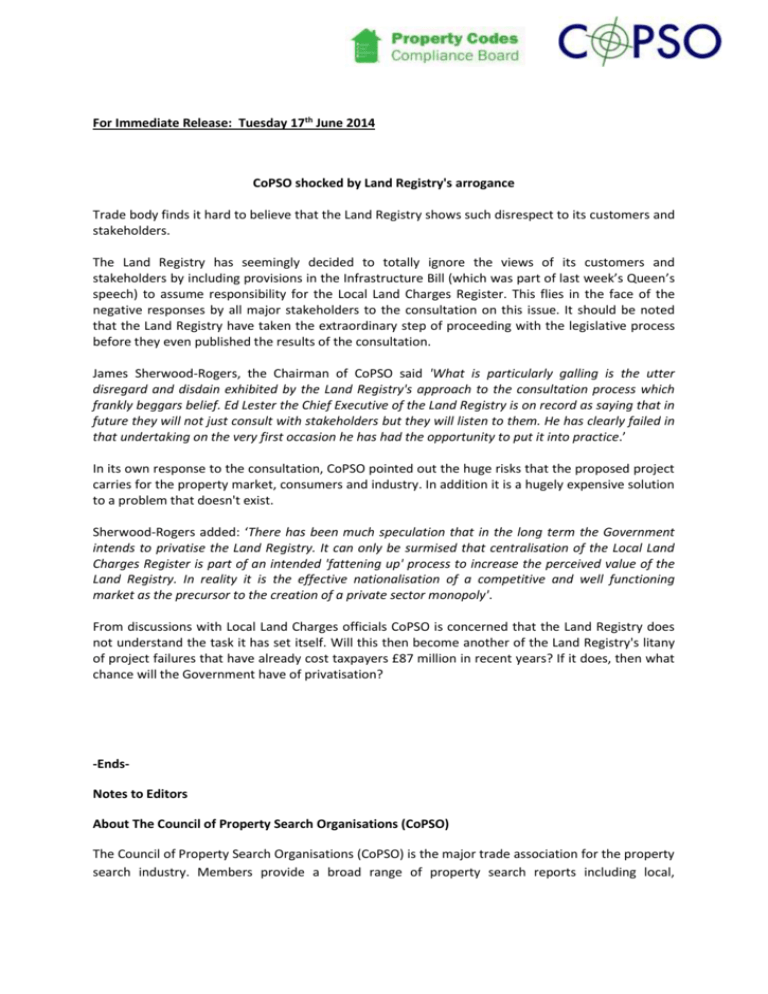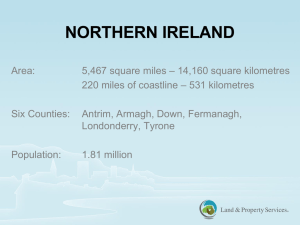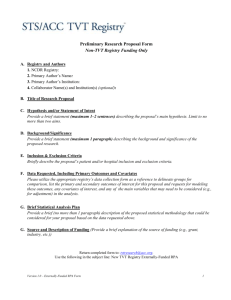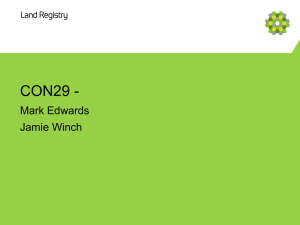read more - thornbyassociates.co.uk
advertisement

For Immediate Release: Tuesday 17th June 2014 CoPSO shocked by Land Registry's arrogance Trade body finds it hard to believe that the Land Registry shows such disrespect to its customers and stakeholders. The Land Registry has seemingly decided to totally ignore the views of its customers and stakeholders by including provisions in the Infrastructure Bill (which was part of last week’s Queen’s speech) to assume responsibility for the Local Land Charges Register. This flies in the face of the negative responses by all major stakeholders to the consultation on this issue. It should be noted that the Land Registry have taken the extraordinary step of proceeding with the legislative process before they even published the results of the consultation. James Sherwood-Rogers, the Chairman of CoPSO said 'What is particularly galling is the utter disregard and disdain exhibited by the Land Registry's approach to the consultation process which frankly beggars belief. Ed Lester the Chief Executive of the Land Registry is on record as saying that in future they will not just consult with stakeholders but they will listen to them. He has clearly failed in that undertaking on the very first occasion he has had the opportunity to put it into practice.’ In its own response to the consultation, CoPSO pointed out the huge risks that the proposed project carries for the property market, consumers and industry. In addition it is a hugely expensive solution to a problem that doesn't exist. Sherwood-Rogers added: ‘There has been much speculation that in the long term the Government intends to privatise the Land Registry. It can only be surmised that centralisation of the Local Land Charges Register is part of an intended 'fattening up' process to increase the perceived value of the Land Registry. In reality it is the effective nationalisation of a competitive and well functioning market as the precursor to the creation of a private sector monopoly'. From discussions with Local Land Charges officials CoPSO is concerned that the Land Registry does not understand the task it has set itself. Will this then become another of the Land Registry's litany of project failures that have already cost taxpayers £87 million in recent years? If it does, then what chance will the Government have of privatisation? -EndsNotes to Editors About The Council of Property Search Organisations (CoPSO) The Council of Property Search Organisations (CoPSO) is the major trade association for the property search industry. Members provide a broad range of property search reports including local, environmental, mining, chancel repair, drainage and water data and undertake over 2 million searches each year. The membership includes water companies, environmental search providers and organisations offering local searches. Today, CoPSO members produce 80% (by volume) of all searches produced in the market. www.copso.org.uk About the Property Codes Compliance Board (PCCB) Formed in 2006, the Property Codes Compliance Board (PCCB) is an independent compliance body. Its primary role is to maintain a register of firms that choose to subscribe to the Search Code of Practice and to independently monitor their compliance with the Code. Subscription to the Code is not mandatory but the vast majority of search products in the market are produced by Code subscribers. PCCB is a not for profit organisation with a public interest majority on its Board and is funded entirely from the subscription fees paid by registered firms. www.propertycodes.org.uk The Search Code The Search Code provides protection for homebuyers, sellers, estate agents, conveyancers and mortgage lenders who rely on the information included in property search reports undertaken by subscribers. The Code sets out minimum standards which organisations compiling and selling search reports have to meet. Organisations providing property search reports can subscribe to the Search Code as either a retailer or a compiler. The Property Codes Compliance Board maintains a register of all subscribing firms. You can check whether a search firm subscribes to the Code by searching the Register or by looking for the Search Code logo on their products. www.copso.org.uk/searchcode





